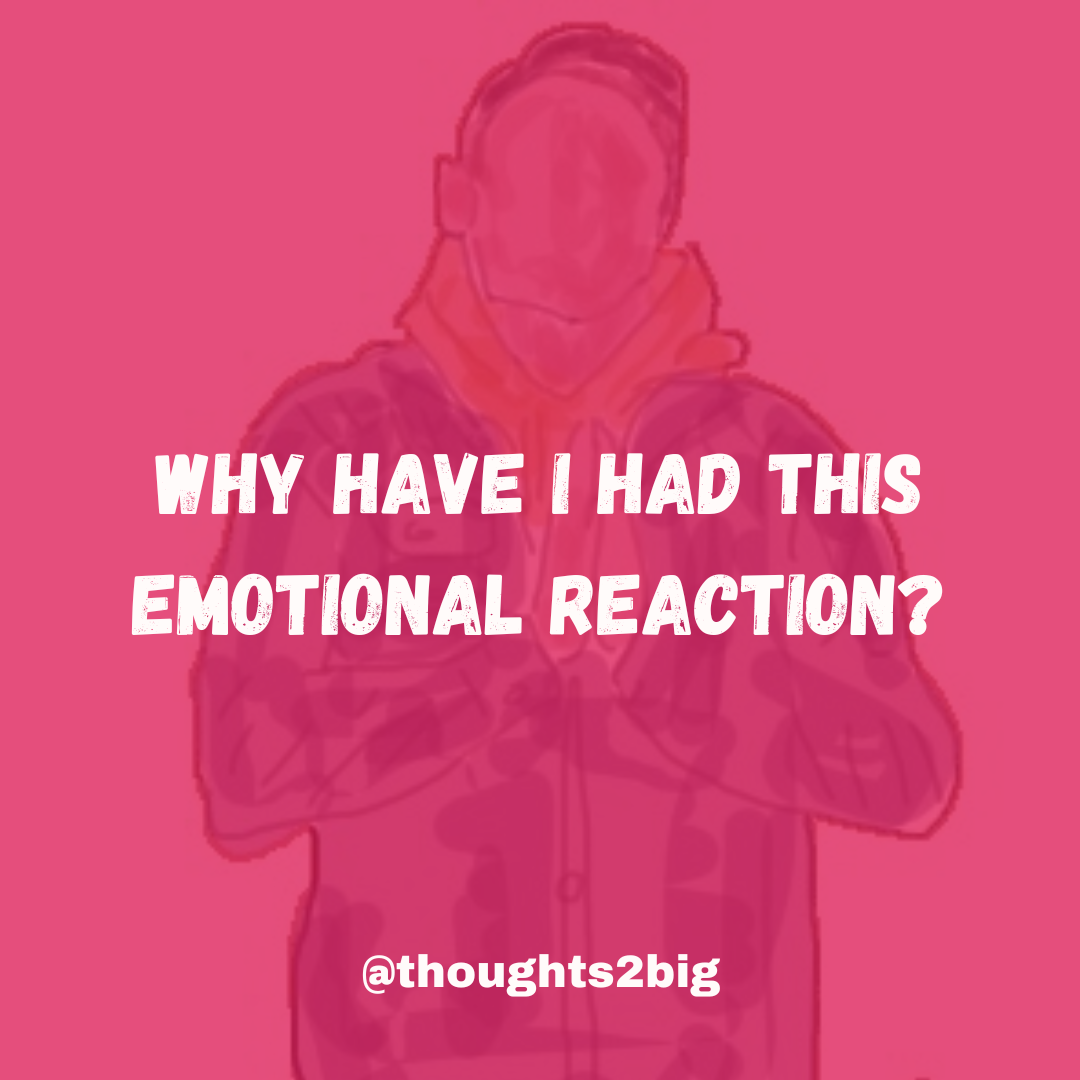Why Have I Had This Emotional Reaction?

Emotions are inherent to all that we do. We’re emotional and social creatures. Many of the less charitable or possibly misinformed perspectives on Stoicism and Rationalism suggest that we must strive to live outside the bounds of emotional.
And of course this is nonsense.
We cannot live without emotion. It’s fused with our being. Anyone who denies getting emotional is merely adopting a very narrow definition of what it means to have an emotional reaction. Many men claim to be uninfluenced by emotion. Yet often they resort to anger when things don’t go their way – like a soccer team losing, perhaps. This is still an emotional reaction whether you want to admit it or not.
So although we cannot live without emotion, nor should we, I think it’s important to be able to justify very intense emotional reactions. Afterall, there is a difference between having emotions and being controlled by them. The latter reducing you to nothing but impulsive reaction.
In order to understand my own emotions better, whenever I have a severe emotional reaction to something, I ask myself the simple question: Why Have I Reacted This Way?
I write this on a sticky note and put it somewhere I can always see it. So when I have an intense emotional reaction, I can ask myself this question.
And this allows me to track the source. Often the thing I’ve lashed out at has nothing to do with why I am angry or upset. Rather, it has become the focus of my emotional reaction because it is convenient. This, I believe, is the reason so many people get angry with strangers online. Instead of addressing the source of the anger in our own lives we externalize it. We lash out at others because this means we don’t have to take responsibility for our own emotions. And that is certainly convenient, but hardly good.
So that’s the gauntlet this week. Whenever you react with emotion, just ask yourself why. Be able to justify that it’s appropriate. It is not that we should live without emotion, but rather than it should enhance our experience, rather than control it.